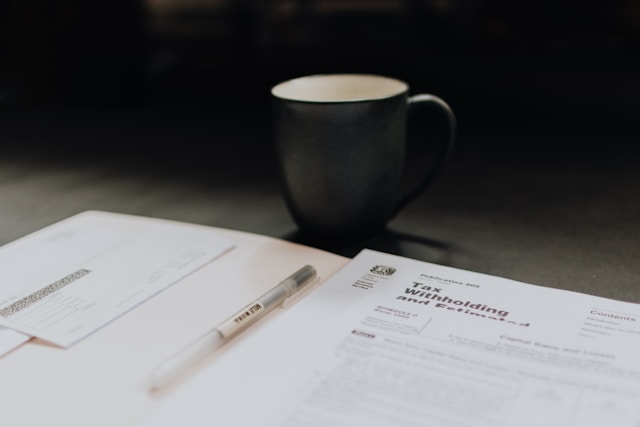Visa Stock Analysis: Is Visa a Strong Opportunity Ahead of Q4 Earnings?
$325.48
28 Jan 2026, 19:25


The UK could face higher US trade tariffs after President Donald Trump announced new "reciprocal tariffs" that factor in Value Added Tax (VAT). This unexpected move raises concerns about increased costs for British businesses, particularly those exporting goods to the United States.
Trump's administration aims to impose country-specific tariffs based on trade agreements, imports, and exports with the US. While the UK previously believed it was less exposed to tariffs, the inclusion of VAT in the calculation has created uncertainty for UK exporters.
Trade analysts predict that tariffs of 20% or more could be imposed on UK exports, with major industries like:
The British Chambers of Commerce (BCC) warns that these sectors could be "significantly hit" by Trump's latest tariff policy, which was announced by the White House.
The Trump administration claims these tariffs are not just about trade imbalances but also about retaliation against "unfair or harmful acts, policies, or practices."
One of Trump’s key tariff policies focuses on whether a country has a trade surplus with the US. In simple terms, the US wants to penalize countries that sell more to America than they buy from it.
However, both the UK and US claim to have trade surpluses with each other, due to differences in data collection methods. Adding VAT into tariff calculations makes things even more complex.
VAT (Value Added Tax) is a consumption tax applied to most goods and services in the UK. Key facts about UK VAT:
Trump has labeled VAT as an "unfair, discriminatory, or extraterritorial tax," arguing that it places US exporters at a disadvantage compared to British businesses.
If the US combines existing tariffs with VAT-based taxes, UK exporters could face combined charges of up to 21%.
The UK government's response has been cautious:
William Bain, head of trade policy at the BCC, acknowledges that the UK has some insulation due to lower export reliance on the US economy. However, he warns that Trump's proposal will "create more cost and uncertainty" for businesses.
Caroline Ramsay, international trade expert at TLT Law Firm, warns that Trump’s definition of "reciprocal" tariffs is unclear, meaning tariffs may not match UK rates directly.
UK Trade Minister Pat McFadden advises patience, stating:
"The most sensible thing to do is to digest these announcements, see if they actually come to pass, and then decide what action to take."
With Trump’s new tariff policy targeting VAT, UK businesses are facing rising costs and economic uncertainty. The UK government must decide whether to challenge the policy, negotiate with the US, or risk a full-blown trade dispute.
As trade tensions escalate, British exporters must prepare for potentially higher tariffs, disrupted supply chains, and shifting trade relationships in the years ahead.
Source: bbc.co.uk, ChatGpt